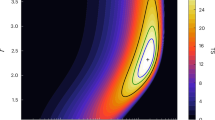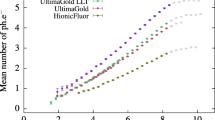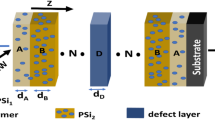Abstract
THE use of the scintillation counter as a gamma-ray spectrometer has been described by Pringle, Roulston and Taylor1, Johannson2, MacIntyre and Hofstadter3, Cavanagh4 and other workers. However, the resolutions obtained have in general been poor, and quantitative measurements of gamma-ray energies and relative intensities difficult to make.
This is a preview of subscription content, access via your institution
Access options
Subscribe to this journal
Receive 51 print issues and online access
$199.00 per year
only $3.90 per issue
Buy this article
- Purchase on SpringerLink
- Instant access to the full article PDF.
USD 39.95
Prices may be subject to local taxes which are calculated during checkout
Similar content being viewed by others
References
Pringle, R. W., Roulston, K. I., and Taylor, H. W., Rev. Sci. Instr., 21, 216 (1950).
Johannson, S. A. E., Nature, 165, 396 (1950).
MacIntyre, J. A., and Hofstadter, R., Phys. Rev., 78, 617 (1950).
Cavanagh, P. E., Nature, 165, 889 (1950).
Belcher, E. H., [166, 742 (1950)].
Pringle, R. W., Nature, 166, 11 (1950).
Author information
Authors and Affiliations
Rights and permissions
About this article
Cite this article
BELCHER, E. Measurement of Gamma-Ray Energies with the Scintillation Counter. Nature 166, 826–827 (1950). https://doi.org/10.1038/166826a0
Issue date:
DOI: https://doi.org/10.1038/166826a0



